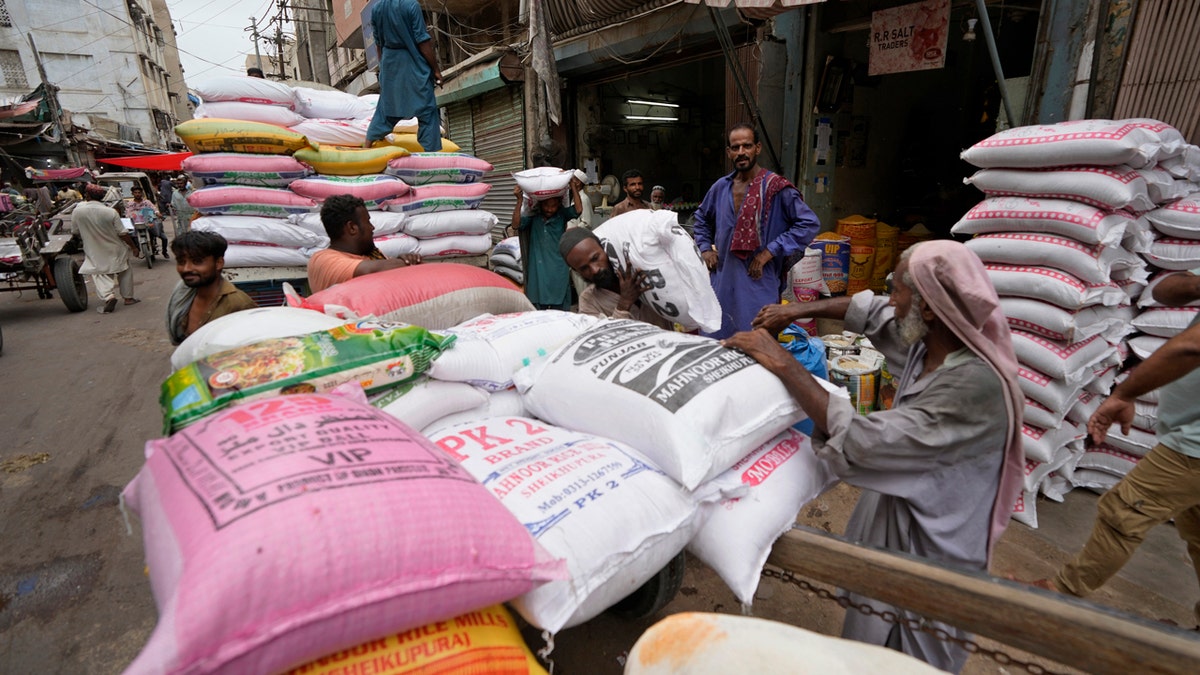Fox News Flash top headlines for July 13
Fox News Flash top headlines are here. Check out what's clicking on Foxnews.com.
Pakistan’s finance minister on Thursday said the International Monetary Fund deposited a much-awaited first installment of $1.2 billion with the country’s central bank under a recently signed bailout deal aimed at helping Islamabad avoid defaulting on its debt repayments.
The financial infusion — part of a $3 billion new bailout deal — comes ahead of parliamentary elections due later this year. Prime Minister Shehbaz Sharif welcomed the development in a live address to the nation.
Earlier in the day, Finance Minister Ishaq Dar said in televised remarks that the remaining $1.8 billion would be received from the IMF over the next nine months. The funds will bolster the country's foreign exchange reserves, which shrank to less than $4 billion in recent months, raising fears of a default. Pakistan’s foreign exchange reserves are likely to rise to $14 billion this week, Dar said.
The latest development came a day after the IMF said its executive board had approved an agreement to release the $3 billion loan to support Pakistan’s economic stabilization program.
Late last month, Pakistan and the IMF agreed to the plan following meetings with Sharif, Dar and other officials. IMF chief Kristalina Georgieva said Wednesday that "Pakistan’s economy was hit hard by significant shocks last year, notably the spillovers from the severe impacts of floods, the large volatility in commodity prices, and the tightening of external and domestic financing conditions."
UNITED NATIONS GROUP URGES CAMBODIA TO RELEASE CAMBODIAN-AMERICAN HUMAN RIGHTS ACTIVIST
She said the $3 billion bailout, if "implemented faithfully," will give Pakistan an opportunity to regain macroeconomic stability and address imbalances through consistent policy implementation.
"Now Pakistan no more faces the risk of a default," Sharif said Thursday and also thanked Saudi Arabia, China and the United Arab Emirates for financially helping Pakistan while talks with the IMF were still underway.

Laborers load sacks of lentils onto a donkey cart at a wholesale market in Karachi, Pakistan, on July 13, 2023. (AP Photo/Fareed Khan)
Sharif said he would step down in August, ahead of the elections. An interim government will oversee the holding of the vote, possibly in October or November.
The IMF bailout for Pakistan had been on hold since December because of the country’s lack of compliance with a 2019 agreement, signed between the IMF and former Prime Minister Imran Khan, who was ousted in a no-confidence vote in parliament last year.
Since coming to power in April 2022, Sharif has blamed alleged corruption under Khan for Pakistan's economic downturn, remarks he repeated on Thursday.
CLICK HERE TO GET THE FOX NEWS APP
A breakthrough in talks came last month when Sharif met with Georgieva in Paris at the Summit for a New Global Financing Pact to discuss the revival of the $6 billion bailout that was to expire on June 30.
Pakistan’s economy witnessed a major shock last summer, when devastating floods killed 1,739 people and caused $30 billion in damage.
This month again, rivers swollen by monsoon rains have inundated dozens of villages in Pakistan's eastern Punjab province, displacing 1,500 people. Nearly 90 people have died in weather-related incidents since June 25 when the monsoon rains began.









































